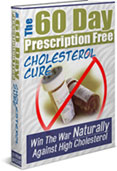Friday, March 23, 2007

High Cholesterol Level: Risk Factors, Treatment Options
What is cholesterol?
Cholesterol is a type of fat (lipid) made by the body. About 80% of cholesterol is made by the body, the other 20% comes from the diet. Cholesterol is a building block for cell membranes. Our body uses cholesterol to produce many hormones (e.g., progesterone, estrogen, testosterone), vitamin D, and the bile acids that help to digest fat.
Many foods contain cholesterol and high intake of these foods can increase the level of cholesterol in the blood. Having too much cholesterol in the blood is not a disease in itself, but high cholesterol (hypercholesterolemia) can cause the formation and accumulation of plaque deposits in the arteries. Plaque is composed of cholesterol, other fatty substances, fibrous tissue, and calcium. When it builds up in the arteries, it results in the hardening and narrowing of the arteries (atherosclerosis) in the major vascular systems.
Narrowing of the arteries around the heart (coronary heart disease) can prevent the heart from getting as much oxygen-rich blood as it needs, increasing the risk of a heart attack. Decreased blood flow to the brain can cause a stroke, and less blood flowing to the lower limbs may result in exercise-related pain or even gangrene.
Having a high cholesterol level does not cause symptoms and does not make you feel sick. If there is a huge excess, some people develop soft, yellowish skin growths called xanthomas, usually in the area near the eyes. Most people find out they have high cholesterol when they have their blood cholesterol measured as part of a medical check-up.
Read more about High Cholesterol Treatment Options
Plug Stamp: FFGNWL
